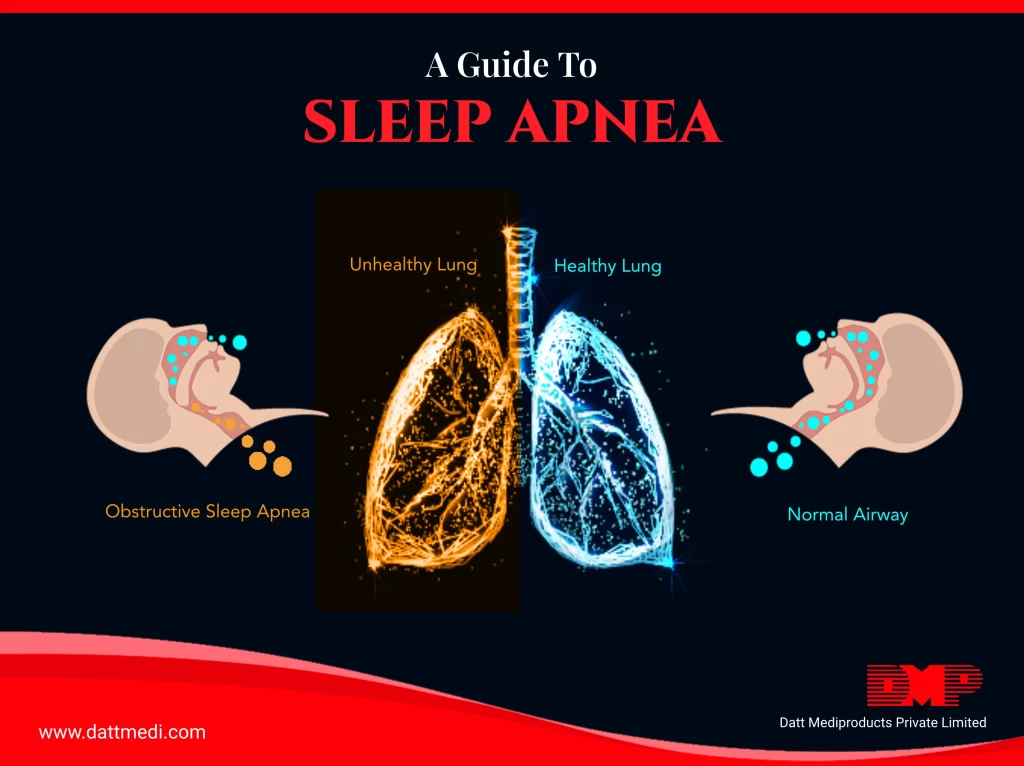
Sleep-Related Breathing Disorders are described by abnormal respiration while sleeping. There are many variations like Obstructive Sleep Apnea (OSA), Central Sleep Apnea, Sleep-Related Hypoventilation, and Sleep-Related Hypoxemia Disorder. The most common variant being the Obstructive Sleep Apnea.
Sleep Apnea is a breathing disorder which arises when a person is not able to breathe properly while sleep. This happens because the airway gets obstructed reducing the amount of air reaching your lungs. Obstructive sleep apnea makes you snore loudly and frequently. Due to sleep apnea, your brain fails to signal the muscles that control breathing and as a result one makes choking sounds.
As we fall asleep, the muscles in the upper airway relax. When we sleep on our back, the tongue falls back because of the gravitational force, narrowing the airway and reducing the amount of oxygen reaching our lungs. The tissue in the back of the throat vibrates making you snore.
Following are a few common symptoms of Sleep Apnea:
- Frequent and Loud Snoring
- Gaps in breathing
- Choking sounds
- Insomnia
- Morning headaches
- Waking unrefreshed
- Difficulty in concentrating
- Irritability
Let’s understand the various risk factors:
- Excess Body Weight: It is the major risk factor for sleep apnea. Overweight and Obese people, with a BMI of 25 or more & 30 or more respectively, are more likely to develop sleep apnea.
- Neck Circumference: A large neck size means more soft tissues, which could block the airway while sleeping. Neck size of 17 inches or more in men and 16 inches in women is another risk factor of sleep apnea.
- Gender: Males and post-menopausal women are at a higher risk of developing sleep apnea. Males are 2 to 3 times more likely to get this indication.
- Family History: Having a family history of the condition also increases your risk.
- Smoking: Smoking increases inflammation and fluid retention in the upper airway making it 3 times more likely for the smokers to develop this condition.
- A Narrowed Airway because of inheritance, or conditions like tonsils or adenoids inflammations may enlarge and block the airways, causing sleep apnea.
How Sleep Apnea leads to other Complications?
The obstruction of airways in sleep apnea results in a lack of oxygen in the body as well as brain, thus, impacting negatively on your overall health in the long term. The various complications may include:
- High Blood Pressure: Sudden reduction in the oxygen levels because of sleep apnea puts a strain on the cardiovascular system.
- Heart Problems: Sleep apnea might increase the risk of recurrent heart attacks, stroke, and atrial fibrillation. It may also result in abnormal heartbeats and death from an irregular heartbeat.
- Diabetes: The risk of developing insulin resistance and Type 2 diabetes increases with sleep apnea
What are the available treatment options?
While mild to moderate type of sleep apnea may be treated by certain lifestyle changes like weight loss and quitting smoking, severe type needs to be treated. Your doctor may recommend different treatment plans based on your condition. Following may be a few of them:
- CPAP (Continuous Positive Airway Pressure): This treatment method involves the use of a machine that delivers steady air pressure and ensures that your airway is open throughout the night for proper breathing. CPAP is a frontline treatment option recommended for all the cases of sleep apnea.
- Oral Appliance Therapy: In this treatment method, an oral appliance is fitted in the mouth to prevent airways from collapsing. It works by holding your tongue in a position so you are able to breathe properly while sleeping. Its recommended for patients with mild to moderate apnea who can’t tolerate CPAP.
- Surgery: Surgery has opted when other treatment methods have failed. Surgical options may include reducing and eliminating the extra tissue which causes an obstruction in the airways.
We @ Datt Mediproducts recommend consulting a doctor if you think you have sleep apnea. Treatment not only relieves the symptoms but also prevents from developing other complications. Your doctor will make a treatment plan that suits your condition the best.
So, Stay Healthy & Sleep Well!




